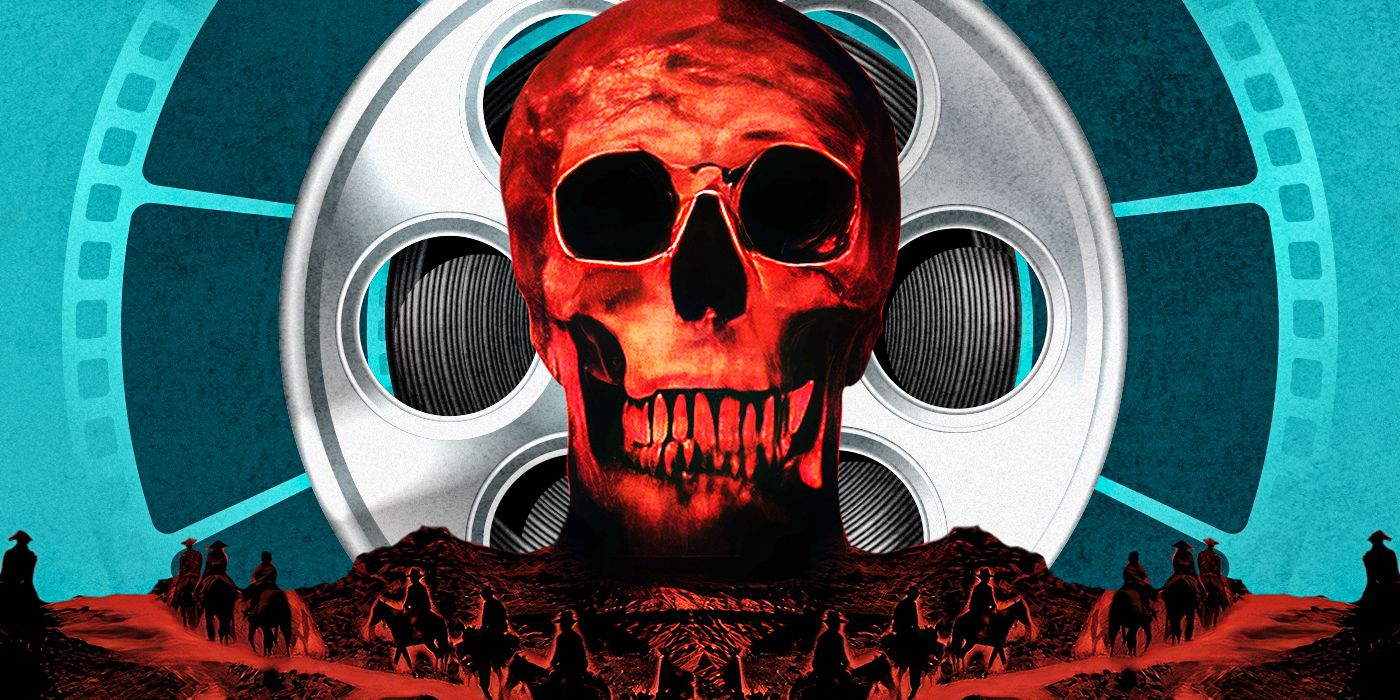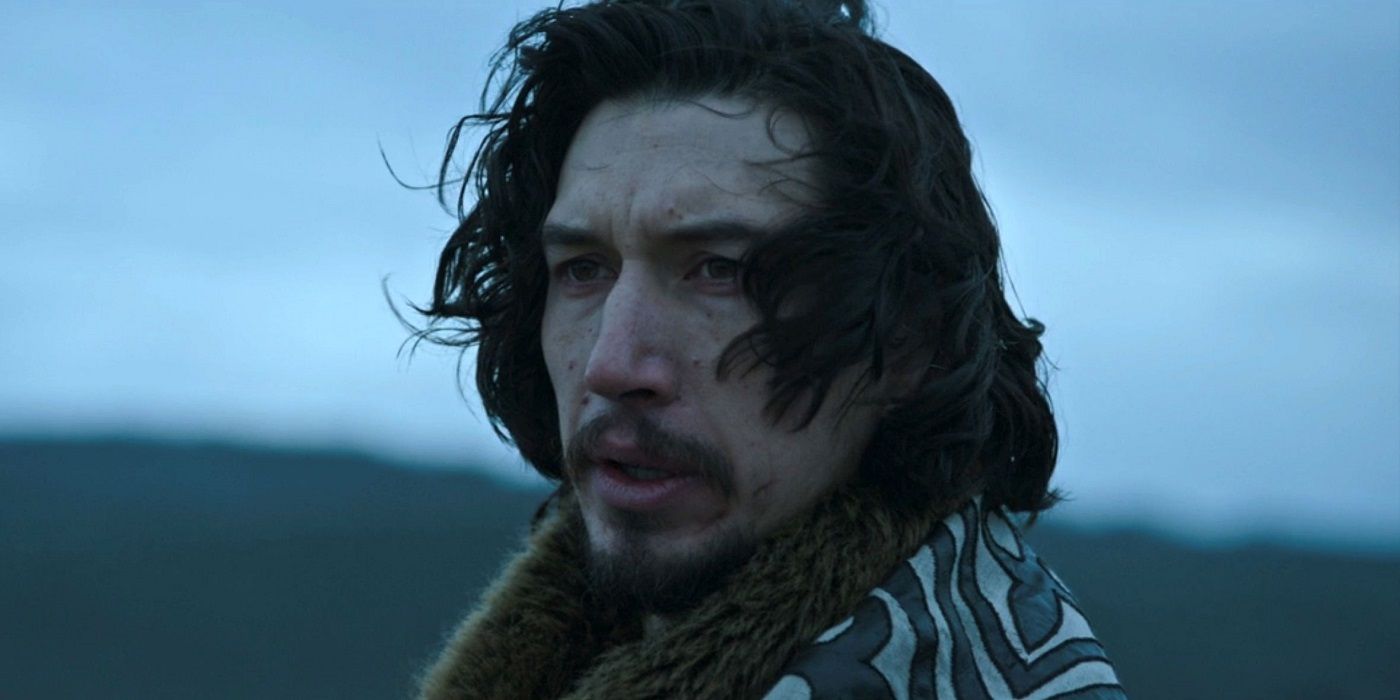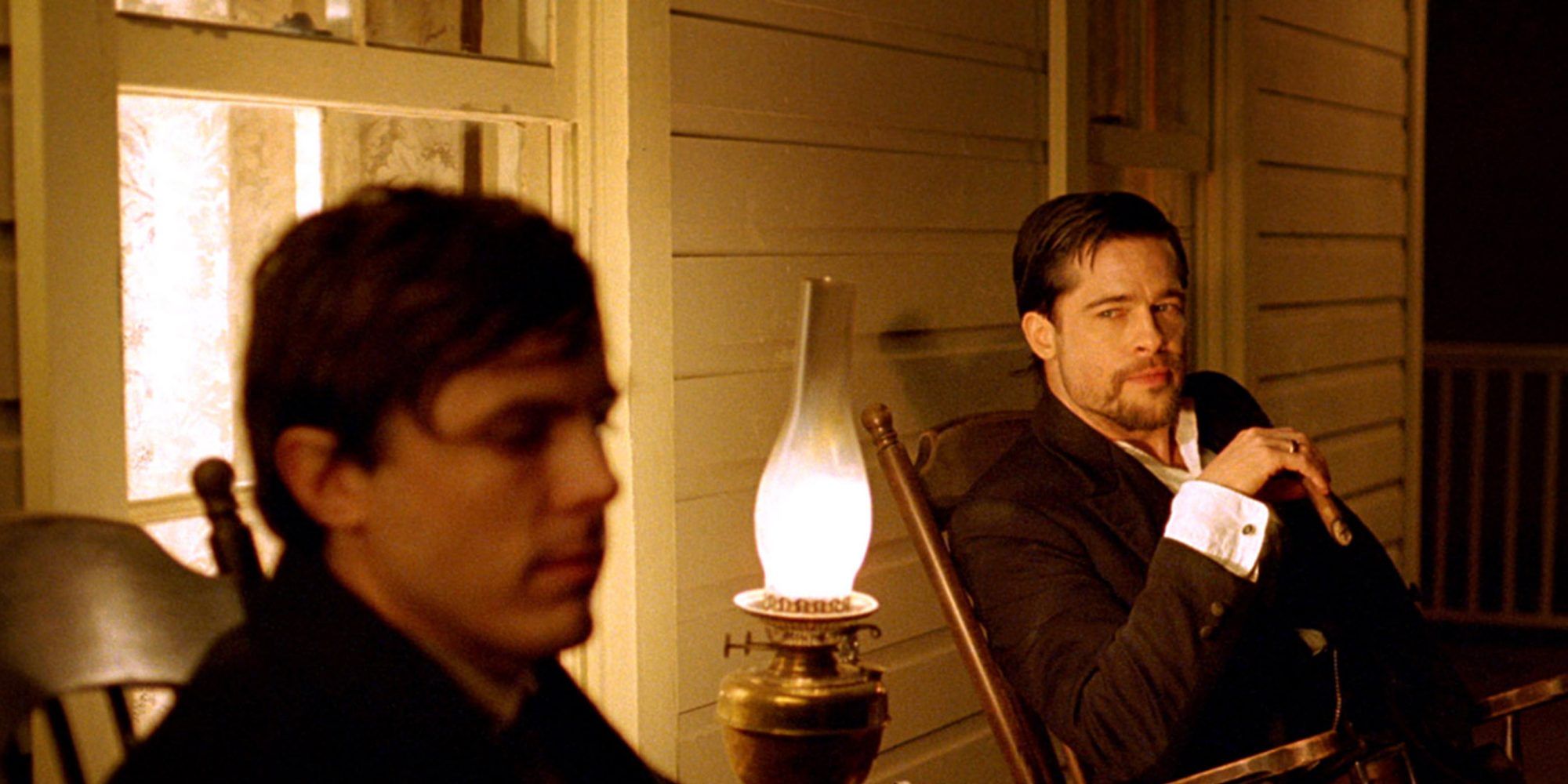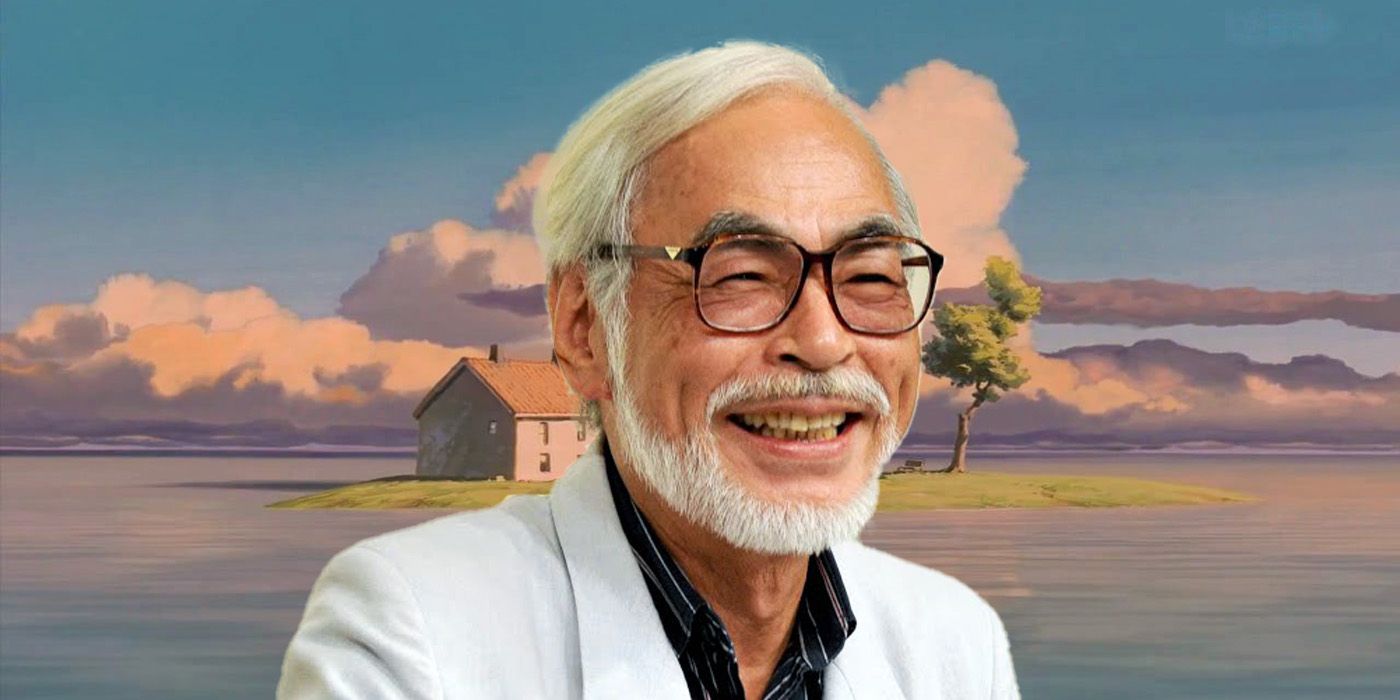Blood Meridian is one of the 20th century’s most acclaimed novels. Like everything Cormac McCarthy published before his commercial breakthrough in the 1990s, it failed to leave much of an impact during its initial release, but it didn’t take long to be recognized as a significant work of western literature. Today it is unanimously considered McCarthy’s magnum opus, and a contender for the illustrious title of Great American Novel – a stunning turnaround for someone who’d spent most of their adult life in total poverty.
It’s no surprise that Hollywood has tried to adapt Blood Meridian for the silver screen, but despite gaining the interest of esteemed directors like Martin Scorsese, Ridley Scott, and Todd Field, none have made it past the development stage. The repeated failures to produce a feature-length version has seen Blood Meridian labeled with the dubious word “unfilmable”, but given its graphic content and ambiguous nature that eschews a conventional plot structure, it might be one of the few novels to fit that term. Even after forty years, we’re no closer to Blood Meridian reaching a cinema near you.
Blood Meridian Is a Violent, Philosophical Western
Trying to explain what makes Blood Meridian a masterpiece is like trying to describe Beethoven’s Symphony No. 5 using only semaphore – you’re really best just finding out for yourself. That might not be the easiest task given how daunting Blood Meridian can appear (especially for those unfamiliar with McCarthy’s refined, almost biblical, prose that shuns most punctuation), but those willing to persevere will find a powerful tale comparable to the epics of Shakespeare and Melville. The novel tells the story of an unnamed runaway (referred to only as “the kid”) who joins a group of scalp hunters operating on the United States-Mexico border during the 1840s. While they initially do this for just reasons – protecting the local communities from pillaging Apache tribes – this soon gives way to bloodthirsty and fatalistic behavior that leaves a trail of bodies in their wake, heroes and villains alike. McCarthy utilizes their nihilistic crusade to explore a range of topics including religion, warfare, and the nature of man – all told via some of the most poetic writing ever committed to the page.
Those unfamiliar with Blood Meridian might read such a description and wonder how it equates to a supposedly unfilmable story that has bested even the most talented of filmmakers (especially since other McCarthy novels like No Country for Old Men and The Road transitioned so flawlessly between mediums), but the genius of McCarthy’s tome lies in more than its literal story. Indeed, much of the novel lacks a clearly defined narrative, with McCarthy placing greater emphasis on vivid descriptions of landscape or ruminations on grand, philosophical concepts. On paper, this transforms Blood Meridian from a simple western into a stunning examination of the human condition, but detach these sections from the written word and they could easily sound obnoxious. It doesn’t help that the kid is essentially a non-character, disappearing into the background for all but a few chapters. As a vector to guide the reader from one set piece to the next, he works fine, but in a visual format his minimal growth could prove troublesome.
And then there’s the violence. Blood Meridian is widely regarded as one of the most graphic novels ever written, featuring an unflinching depiction of the American Frontier that will turn away casual readers in a matter of pages. If you can imagine it, there’s a good chance these scalp hunters do it, giving Blood Meridian the feel of a macabre nightmare. The violence is so all-encompassing that it becomes the story, preventing the easy fix of sanding down its brutal edges to keep things in the realm of financially viable. The instigator for much of this destruction is Judge Holden, the gang’s 7 ft tall (and completely hairless) second-in-command whose enigmatic nature could command a Ph.D. thesis by himself. Less a character than he is a physical manifestation of evil, Holden is one of the most studied creations in literature, boasting a supernatural aura that makes him equal parts mesmerizing and terrifying. It would be an extraordinarily difficult role to cast, with even the smallest miscast doing irreparable damage to the film. No wonder discussions about who should play him provoke such divisive responses.
Directors Like Tommy Lee Jones & Ridley Scott Have Tried To Adapt Blood Meridian (With No Luck)
But despite these issues, Hollywood has shown an almost psychotic interest in adapting Blood Meridian. And despite these issues, it’s easy to see why. The high esteem that both Blood Meridian and Cormac McCarthy are held in would inevitably make it one of the most talked about films of the year, and were a director able to find that illusive sweet spot that translated its horrific beauty into the language of cinema, there’s no reason why it couldn’t be one of the most acclaimed too. The phenomenal success of No Country for Old Men – the winner of four Oscars including Best Picture and Best Director, and now revered as one of the 21st century’s greatest films – will only have spurred on this insatiable desire. Unmade screenplays are reportedly so common in L.A. they could wallpaper every house in Pasadena, and their continued existence appears to have turned Blood Meridian into a sinister rite of passage for any aspiring screenwriter. We’ll never know for certain how many times Hollywood has tried (and failed) to make Blood Meridian, but a few have since come to light.
The first publicly known attempt came in the mid-1990s via acclaimed actor turned budding director Tommy Lee Jones, a close friend of McCarthy’s who would later demonstrate his aptitude for bringing that particular blend of Southern Gothic to life thanks to his role in No Country for Old Men. His version, made in collaboration with Academy Award-winning screenwriter Steve Tesich, is regarded as the closest we came to a finished project… and considering that he also never got beyond the development stage, that says a lot. Rather than trying to condense its breadth of material into a traditional, three-act structure, Jones planned to adapt only the first third of the novel – a curious direction that could well be the best way to approach such a herculean task. Jack Nicholson was in talks to play Holden, but the age-old issue regarding the film’s violent content prevented things from moving forward, robbing us of what looked to be a fascinating adaptation.
Indeed, it was this exact problem that killed most potential adaptations, such as a version spearheaded by Ridley Scott in the mid-2000s. Alongside his Kingdom of Heaven scribe William Monahan, Scott – never a director who had much time for compromise – intended to go all in with the novel’s violence, resulting in a gore-heavy rendition that sounds more akin to a horror film than a revisionist western. “It would have been rated double-X”, he later described it as – a statement that wouldn’t have brought confidence to already nervy investors. Scott did satisfy his McCarthy itch with 2013’s The Counselor (his only original screenplay to also get the feature-film treatment), a wordy and often bewildering watch that feels closer to an audiobook than a truly cinematic experience. Its mixed reception had McCarthy scholars breathing a sigh of relief that he was never able to make Blood Meridian, but considering how Kingdom of Heaven also mixed historical fact and speculative fiction to craft a nuanced character study amidst the backdrop of harrowing warfare, perhaps he would have been the ideal choice.
The most recent attempt came from (of all people) James Franco. You might be shocked to learn that Franco has over thirty-nine directing credits on IMDb, but Franco has spent much of his career populating his filmography with artsy (and generally uninspired) passion projects, many of which are based on classic works of literature. Franco has spoken of his dream of turning Blood Meridian into a film, so much so that he even shot thirty minutes of test footage out of his pocket (or rather, his agent’s pocket after she reimbursed him her commission from 127 Hours) to prove that he was the one for the job. This footage is available for viewing, and while it paints a grim picture of what a Franco-directed adaptation would have looked like, it’s hard to get too critical towards something that was never intended to be made public. Franco did get the backing of a production company to develop a full-length version, but issues related to the film’s rights brought things to an immediate halt. Production has never recovered, leaving his proposed film starring Russell Crowe, Tye Sheridan, and Vincent D’Onofrio (a genuinely brilliant choice for Judge Holden) in limbo.
McCarthy Has Rejected the Notion That Blood Meridian Is Unfilmable
But these are only a handful of the numerous directors who have tried their hand at cinema’s great behemoth. Todd Field, Andrew Dominik, and John Hillcoat – the latter of whom also directed The Road, and was even suggested for the project by McCarthy himself – have all thrown their hat into the bloodstained ring, only to come up against the same impenetrable wall that defeated their predecessors. Meanwhile, prestigious directors like Martin Scorsese, Oliver Stone, Michael Haneke, and Lynne Ramsay have also been tentatively linked to the project, and while some of these may veer closer toward offhand comments than genuine attempts at realizing the impossible, the fact they were considered at all say’s a lot about Blood Meridian’s standing in the arthouse community. If only it wasn’t so unfilmable.
But then again, what does that term even mean? If “unfilmable” novels like Dune, Life of Pi, and Cloud Atlas can leap between mediums, why couldn’t the same also be done with Blood Meridian? McCarthy himself has rejected the idea that his opus is destined to remain on the page forever, admitting that while it would be “very difficult to do”, there’s no reason why someone “with a bountiful imagination and a lot of balls” couldn’t get it done. The simple truth is that Blood Meridian isn’t unfilmable, it’s just that everything that makes it a masterwork are so firmly entrenched in the written form that it would require substantial alternations to work in a new format, and it would take a brave filmmaker to start tinkering with the foundations of a certified classic. It’s inevitable that someone, someday, will make this dream a reality, at which point the internet can move on from debating if Blood Meridian is unfilmable to whether Blood Meridian should only ever be a novel. Until that day, we’ll have to tide ourselves in wild speculations. It’s not like we’re short on options.
























































![Key Metrics for Social Media Marketing [Infographic] Key Metrics for Social Media Marketing [Infographic]](https://www.socialmediatoday.com/imgproxy/nP1lliSbrTbUmhFV6RdAz9qJZFvsstq3IG6orLUMMls/g:ce/rs:fit:770:435/bG9jYWw6Ly8vZGl2ZWltYWdlL3NvY2lhbF9tZWRpYV9yb2lfaW5vZ3JhcGhpYzIucG5n.webp)




















